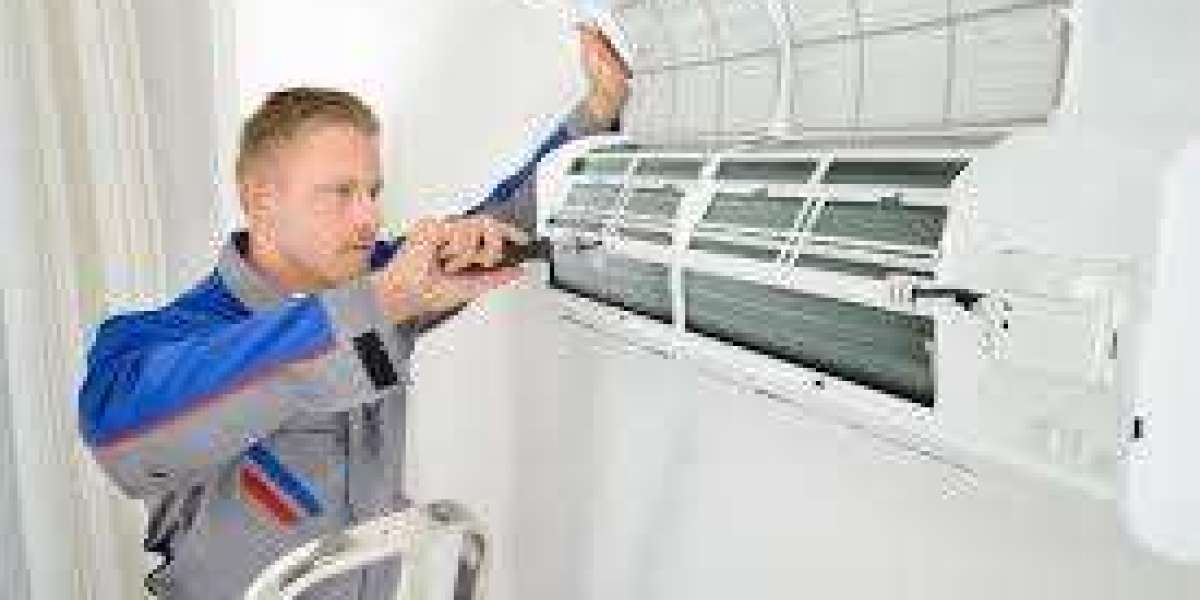As temperatures soar during summer, few things are as essential to our comfort and well-being as a functioning air conditioning (AC) system. But even the best AC units don’t last forever. At some point, every homeowner must face a difficult question: should you repair your current unit, or is it time to replace it entirely?
Deciding whether to repair or replace your AC involves a variety of factors—cost, age, efficiency, and comfort, to name a few. This guide walks you through how to make a smart, informed decision about your cooling system.
1. The Average Lifespan of an AC Unit
Most central air conditioning units last between 10 to 15 years with proper maintenance. However, this is not a hard rule. Some high-quality systems can exceed this range, while others may start to fail sooner due to poor maintenance, incorrect sizing, or heavy use.
According to the U.S. Department of Energy, modern air conditioners last about 15 to 20 years, but the efficiency can degrade significantly after 10 years [source].
So, if your system is over a decade old and you're experiencing frequent issues, that may be your first red flag.
2. Frequent Repairs: A Sign of Decline
An occasional repair isn’t unusual, especially as your system ages. But if you find yourself calling an HVAC technician every few months, those repair bills can quickly add up. A good rule of thumb: if repairs in a year are more than 50% of the cost of a new system, it's usually more economical to replace the unit.
Some common repair issues that signal deeper problems include:
- Refrigerant leaks
- Compressor failure
- Electrical control failure
- Frequent cycling or short cycling
- Frozen coils
Not only are these issues costly, but they also indicate that your system may be on its last legs.
3. Rising Energy Bills
Have your energy bills crept up over the last few years, even though your usage hasn’t changed much? That’s another major indicator that your AC is losing efficiency. Older units, especially those more than 10 years old, are likely to have a lower SEER (Seasonal Energy Efficiency Ratio) rating, meaning they use more energy to produce the same level of cooling.
Upgrading to a new, energy-efficient system could save you 20% to 40% on your cooling energy costs, according to the U.S. Department of Energy [source].
New units with SEER ratings of 16 or higher offer significantly better performance, and the long-term savings can often justify the upfront cost of replacement.
4. Comfort Inconsistencies in Your Home
Another telltale sign your AC may need replacement is if you're experiencing uneven cooling. Some rooms may feel ice-cold while others remain hot and stuffy. This can be caused by a number of factors:
- Inadequate ductwork
- Poor system sizing
- Failing components
Although duct or vent adjustments may improve airflow temporarily, these symptoms often suggest that your AC isn’t up to the task anymore—especially if you've made additions to your home or changed its layout since installation.
5. Outdated Refrigerant
If your AC uses R-22 refrigerant (commonly known as Freon), it may be time to replace your system. As of 2020, the U.S. Environmental Protection Agency (EPA) banned the production and import of R-22 due to environmental concerns. This makes repairs involving refrigerant extremely expensive and increasingly impractical.
New systems use more eco-friendly and readily available refrigerants like R-410A. If your AC still uses R-22, you’re not only spending more on service, but also investing in outdated technology.
6. The 5,000 Rule
Many HVAC professionals refer to a quick formula to help homeowners make the repair vs. replace decision: Multiply the cost of repair by the age of your unit. If the result is more than $5,000, replacement is the smarter option.
For example:
- A 12-year-old AC with a $500 repair estimate: 12 x $500 = $6,000 → Consider replacing.
- An 8-year-old AC with a $300 repair: 8 x $300 = $2,400 → Consider repairing.
This isn't a strict rule, but it offers a useful baseline for comparison.
7. Technological Advancements
Technology has improved drastically in recent years. Smart thermostats, zoning systems, variable-speed compressors, and enhanced dehumidification are now standard in many high-efficiency models.
If your current system lacks these features, you're likely missing out on both comfort and cost savings. Plus, modern AC systems are often quieter, more reliable, and environmentally friendly.
8. Environmental and Health Concerns
An older air conditioner might be releasing more pollutants or failing to filter out allergens and dust effectively. If anyone in your household suffers from asthma, allergies, or other respiratory conditions, a newer system with improved air filtration and humidity control can make a noticeable difference in indoor air quality.
9. Incentives and Rebates
Many local utilities and government programs offer rebates for upgrading to energy-efficient systems. These financial incentives can significantly reduce the net cost of replacement, especially if you’re investing in an Energy Star-rated unit.
Before replacing your system, check with your local utility provider or visit Energy Star's rebate finder to see what programs you may qualify for.
10. Future-Proofing Your Home
If you plan to stay in your home for many more years, replacing your AC is a long-term investment in comfort, reliability, and energy efficiency. But if you plan to move in a year or two, a major replacement might not pay off—unless it boosts your home’s resale value.
In many markets, newer HVAC systems are a key selling point. A buyer might be more willing to make an offer—or pay a premium—if they know the AC system won't need attention for years.
Final Thoughts: Repair or Replace?
Here’s a quick checklist to help you make your decision:
Criteria | Repair | Replace |
AC under 10 years old | ✅ | |
Minimal repair history | ✅ | |
Minor issue, low repair cost | ✅ | |
Uses modern refrigerant | ✅ | |
Consistent comfort | ✅ | |
AC over 12–15 years old | ✅ | |
Rising energy bills | ✅ | |
Uses R-22 refrigerant | ✅ | |
Frequent breakdowns | ✅ | |
Uneven cooling or poor air quality | ✅ | |
Cost of repair × age > $5,000 | ✅ |
Ultimately, the decision comes down to balancing short-term cost with long-term value. If your AC is relatively young, still under warranty, and only occasionally needs repairs, you’re probably safe to continue investing in maintenance. But if your system is aging, inefficient, or a frequent source of frustration, it’s likely time to consider a full replacement.
Investing in a new, energy-efficient system may feel expensive upfront, but the savings in energy bills, repair costs, and enhanced comfort can make it well worth it.
Summary
Deciding whether to repair or replace your AC system is rarely straightforward. However, by considering factors like age, repair frequency, energy efficiency, and refrigerant type, you can make a smarter choice for your home and budget.
Remember:
- ACs over 10 years old lose efficiency and can cost more in the long run.
- Modern replacements can cut energy bills by up to 40%.
- Use the $5,000 rule to evaluate cost-effectiveness.
When in doubt, consult a trusted HVAC professional to assess your system’s health and provide an honest opinion. A well-timed replacement could save you from a midsummer breakdown—and thousands of dollars down the road.








